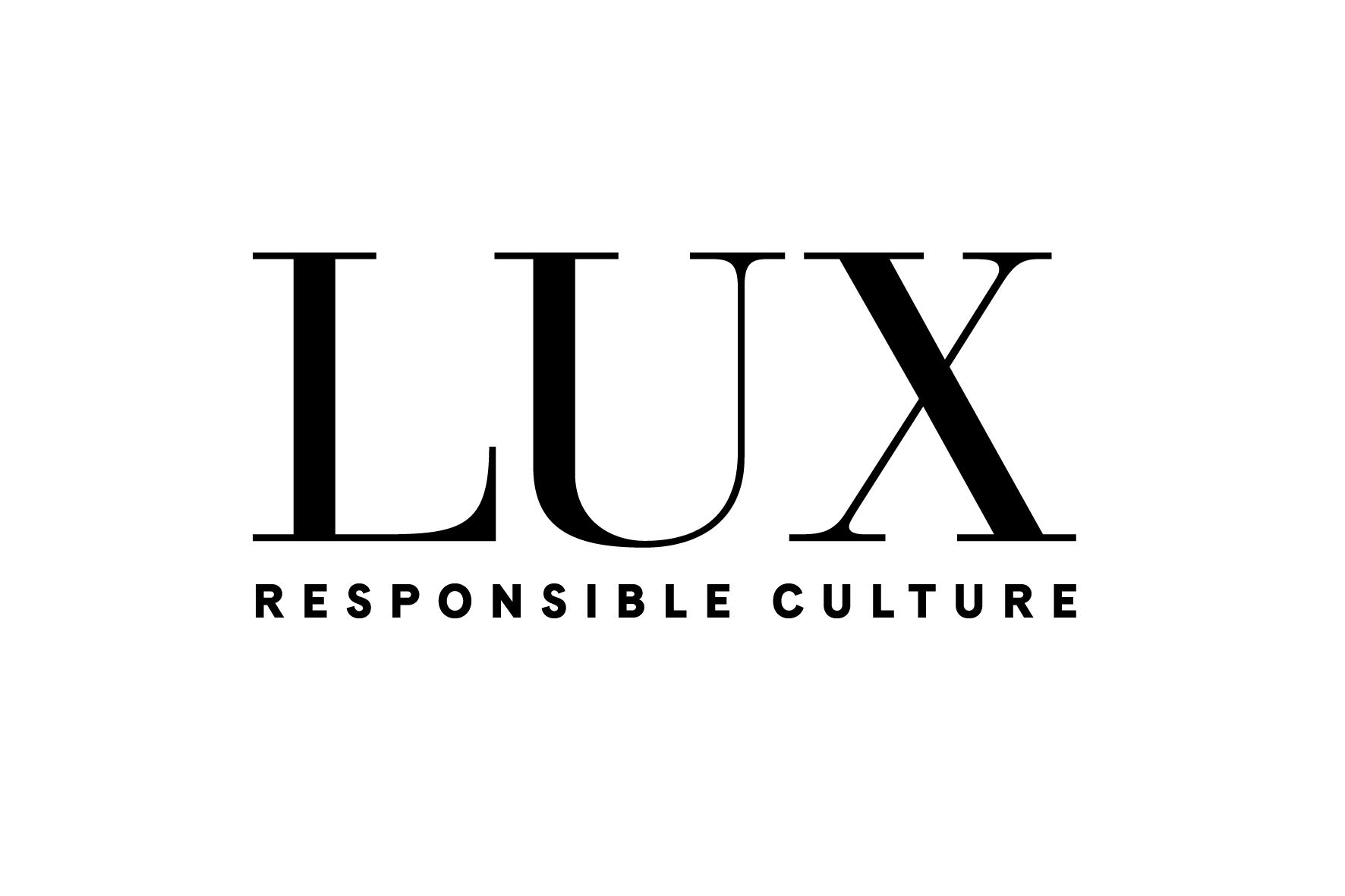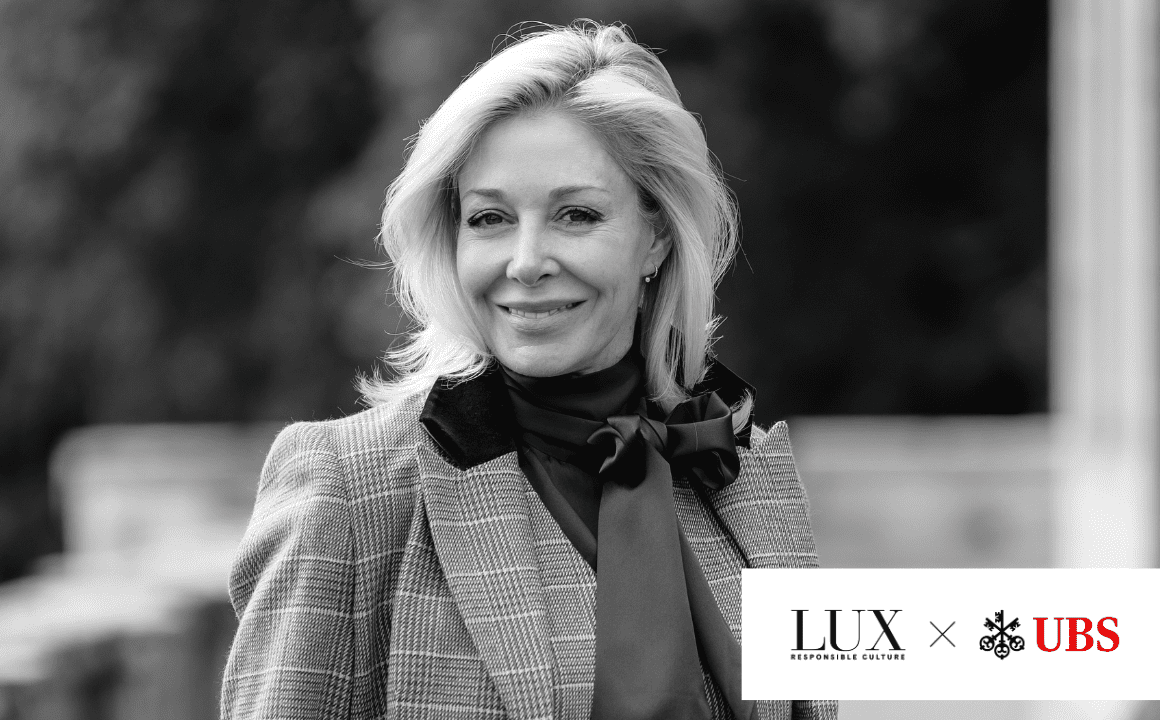 Can we put a price tag on nature? Valuing the carbon services of plants and animals is essential to bridging the gap between finance and conservation, says Professor Connel Fullenkamp, the leading academic working at the intersection of science and economics. Here, Fullenkamp speaks to LUX about the importance of engaging capital markets in biodiversity financing, and why necessity is the mother of invention
Can we put a price tag on nature? Valuing the carbon services of plants and animals is essential to bridging the gap between finance and conservation, says Professor Connel Fullenkamp, the leading academic working at the intersection of science and economics. Here, Fullenkamp speaks to LUX about the importance of engaging capital markets in biodiversity financing, and why necessity is the mother of invention

Professor Connel Fullenkamp
LUX: You have spoken profoundly about the value of natural assets.
CF: We’re bringing economics, finance, and business into an area where it really hasn’t been brought in before. We start with the approach that says these natural assets have a lot of value, but we don’t necessarily know how to put a price tag on that value. So, we start only with the things that we can find a market price for. This is because we want to speak the same language as investors and policymakers who have to keep their eye on the bottom line all the time.
When we go out and try to put a value on a natural asset, be it an elephant or a mangrove forest, we’re really thinking about this as trying to attach the lowest, believable value. We’re trying to convince people that the value is way more than that. That has got a lot of people’s attention, because it acquaints them with the tremendous value that resides in many natural assets.
LUX: Can there be a system that’s devised for transferring payments? For example, if a company destroys a coastal mangrove plantation, who does it pay for that lost value?
CF: Part of the desire behind this is to prevent the destruction from happening in the first place. But we’re living in a world in which we already have those kinds of swaps going on. So, what we’re trying to do is put an adequate value on that. We are also trying to create the impression that the contributions to things like biodiversity are worth even more. In many cases, of course, it’s the government that owns these assets, so we have to inform them what they are worth.
Follow LUX on Instagram: luxthemagazine
For example, we were approached by the UK Environment Agency to help them value their salt marshes, given that they have diminished by 90% in the last century or so. If we can put a price tag on these things, we can help governments make the argument that, firstly, you shouldn’t destroy these things in the first place, and secondly, if you do harm these assets, there’s going to be a steep price to pay.

LUX: How hard is it to find a valuation when there are so many different factors? For example, with a salt marsh, you have to incorporate the carbon storage or the flood protection, and then the ecosystem’s biodiversity.
CF: It’s difficult to put a total valuation on most of these natural assets because it has proven to be difficult to value something like the contribution to biodiversity. It’s hard to even define what biodiversity is. Biodiversity in a desert is very different to that 1,000 or more kilometres south in rainforests.
LUX: What opportunities are there in terms of constructing a financial pathway for investors?
CF: This is something we’re very keen to create. Ideally, we’d have investors who are interested in investing in natural capital services, such as carbon sequestration, because there’s a fairly well-established market for it. These investors would like to purchase either carbon offsets or have other reasons for wanting to hold carbon credits. They would pay for certificates that would deliver the carbon credits, and then the proceeds would function like a sovereign wealth fund.
Read more: Professor Nathalie Seddon On Biodiversity And Climate Resilience
Hopefully, the main use of that money would be, of course, to establish conservation restoration programmes. This is a long pathway between the financial markets all the way to the people on the ground doing conservation restoration. But unless we create that pathway, I think we’re missing out on a huge opportunity.
LUX: Which opportunities should investors be looking towards, in terms of creating the new financial system to support this?
CF: There are two things that should create excitement. They’d be investing on the idea that these are natural resources will continue to deliver these different environmental services, like carbon sequestration. We’re betting on the recovery of those things. Also, they’re betting on the plus in which carbon will help us understand what the biodiversity benefits are, that can also then be priced. If we get good at establishing these carbon markets, we kind of wrap in these biodiversity services as a plus.

LUX: What are the main hurdles to be overcome?
CF: Governments are very reluctant to think about selling their natural assets to the private sector. And so, our first hurdle is to convince them that, no, you’re not selling the assets. We’re trying to get you to sell the services of the natural assets; in fact, governments need to retain ownership of these assets.
We have to establish a conduit that will help governments protect these assets so that they can continue to generate services and support: mainly the beauty and culture of their countries. Governments are naturally reluctant because this is a brand new thing that they’ve never seen before. The markets are sceptical for similar reasons, and because there are some less-savoury actors out there who’ve already been trying and failing with certain initiatives.
Also, there is, especially in the case of wild animals, scientific uncertainty. So many of these species are facing near extinction across the board. We don’t have time. We need people to say, okay, the science is good enough. We’re willing to believe in it and bet on it.

LUX: Are these outcomes possible?
CF: I’m optimistic. The reaction we get when we talk to people has been overwhelmingly positive. When you get the capital markets involved, you can unleash a tremendous amount of financing that can do a lot of good, hopefully for conservation and restoration.
It is hard to imagine being able to cover that biodiversity financing gap without the participation of the financial markets. So, one of the things that drives my optimism is the fact that necessity is the mother of invention. For addressing climate change, this is one of our best chances. The trick is to put everybody together and get them to work together toward this common goal.

LUX: Will there be developments in attaching more specific prices, in terms of the science around biodiversity and nature-based capital?
CF: Absolutely. I think there’s a lot of excitement in that research. In particular, for example, one of the leading seagrass researchers is very excited about our work and is writing a paper for us. Seagrass is again one of these unsung heroes of blue carbon that sequesters a tremendous amount of carbon. We still don’t know what the full extent of seagrass coverage is anywhere, because nobody’s really had the money or the gumption to go look for it. So just finding out where the seagrass is, how much it covered it can sequester and where it can be restored: those kinds of issues are the type of research that we see coming out of this in the short term.
LUX: Are there accessible ways of investing in natural capital in the way that you’ve outlined?
CF: What we’ve got in mind is a bit different from, say, the sustainability linked bonds or green bonds that we see out there. There again, I think these are they’re all great and part of the solution here. But really, when you’re investing in something like a sustainability linked or a green bond, you’re basically a bond investor. You’re hoping that the money gets put to a certain type of a purpose. And in some cases, you’re going to get some either yield pick up or yield penalty depending on the performance. But really, you’re not making a direct investment, so to speak, or a direct bet on the actual natural capital itself. You’re really not investing in environmental services. That’s to me, in my mind, that’s a really big difference here, that what we’re what we have in mind and what we’re trying to create is really an asset backed market. And the asset that is being used to back the market is the natural capital services.
Read more: Dimitri Zenghelis on Investing in the Green Transition
LUX: In an optimistic scenario, how do you see this looking in 10 years’ time with the landscape?
CF: This will be just another asset class that people have available to them to invest in and it will have certain properties. Hopefully it will be sufficiently uncorrelated with other types of market returns to make it attractive as a diversification tool, if not for its own sake, and what it represents in terms of investment in the environment. So ideally, that’s what we’d see people would say. Well, I’ve got some of my portfolio in stocks and bonds, real estate alternatives. And one of the alternatives is going to be these natural capital assets.
Connel Fullenkamp is Professor of the Practice and Director of Undergraduate Studies in the Department of Economics at Duke University
Find out more: duke.edu

Portia Antonia Alexis is a leading consumer business analyst, neuroeconomist and mathematician
Portia Antonia Alexis is a neuroeconomist and consumer goods analyst specialising in the luxury and beauty sector. Following the publication of a recent research paper entitled ‘The Global Elite,’ the McKinsey alumnus speaks to LUX about how populism is just another form of protection for ingrained elites, why more women will become entrepreneurs, and how self-made billionaires are not always what they seem
LUX: Recent elections in the US, UK and elsewhere have returned a populist message. Yet US President Donald Trump and UK PM Boris Johnson are part of the elite themselves, and their elections are benefitting the elite more than anyone else. How can this be?
Portia Antonia Alexis: Right-wing populism emerges when the political and economic status quo fails the majority of people. Populist politicians build their base by constructing an in-group – in this case, hardworking white Britons – and pitching themselves as the champions of this “oppressed” group. They then blame the out-group – Muslims, migrants and scroungers – for the hardships everyone else is suffering.
Follow LUX on Instagram: luxthemagazine
In doing so, they channel widespread anger away from the powerful – the economic and political elites – and towards the powerless. They may claim to be tearing up the status quo, but their fundamental objective is to protect capitalist institutions when they are at their most fragile.
This strategy extends into the realm of policy. Johnson’s electoral agenda – from clamping down on crime to ending freedom of movement within the EU – will polarise politics around an opposition between white, working-class Britons versus migrants and welfare scroungers. He will declare himself tough on crime and migration while casting his opponents as out-of-touch elites who don’t understand the concerns of ordinary people.
Right-wing populism must be seen for what I think it is: a symptom of a crumbling capitalist order that no longer promises a better future for most people.
LUX: An increasing number of super-wealthy are self-made. Is this good?
Portia Antonia Alexis: This question reminds me of the controversial Forbes cover story naming Kylie Jenner a “self-made” billionaire.
Critics cited that it was irresponsible for that magazine not to address how Jenner’s family fame helped her amass her fortune. And it’s true, in a way. Calling Jenner self-made connotes a sense of empowerment and a narrative that she lifted herself by her bootstraps. In contrast, her successful company is not so much the result of being self-made but rather an extension of the already successful empire that’s driven by her sisters.
Most bottomless pockets, not just Jenner, consider themselves entirely “self-made.” Rich people are very conflicted about their entitlement. To cope with this conflict, many simply pretend to be self-made. President Trump is a glaring example. Even though he grew up wealthy, he introduces himself as an entrepreneur.
The best evidence of this bias to claim “self-made” status? The annual September release of the Forbes magazine list of America’s 400 richest.
The necessary conclusion from these findings: Forbes is spinning “a misleading tale of what it takes to become wealthy in America.” Most of the Forbes 400 have benefited from a level of privilege unknown to the vast majority of Americans.
Read more: Inside artist Sassan Behnam-Bakhtiar’s Saint-Jean-Cap-Ferrat studio
LUX: When will women start to have a significant presence in the ranks of the super-wealthy?
Portia Antonia Alexis: While women still represent a relatively small part of the billionaire community, they are a continuously growing segment. Perhaps more interesting is that the percentage increase in self-made women was more significant than the rise in the number of billionaires overall, which could signal a change in who will create and control wealth moving forward.
Much of the increase in super-rich women is due to entrepreneurship. These women, like all self-made successes, exhibit several core characteristics. For example, they typically have high levels of self-efficacy, are adept at strategic networking, and are accomplished negotiators.
Women that have created their wealth are different from those that marry or inherit their wealth in several essential ways. They are more willing to take calculated business risks, and they are often motivated to take steps to enlarge and enhance their fortunes through new business ventures, sophisticated tax and investment strategies, and the creation of family offices.
There is unconscious bias in the system, though. I believe many men would like to see more women at the top. I don’t think they’re all actively trying to keep women out, but some discrimination still exists.
I am confident that we will achieve gender parity in top income generation over the next generation. The girl who can dominate a field of robots is a woman who can dominate a field of men.

LUX: As millennials mature, will the nature of consumption change?
Portia Antonia Alexis: Millennials are less wealthy than people were in the past, which makes them very price-sensitive for brands and products that are not differentiated from competitors. But while they have less money, they are very value-focused and are willing – thanks to their parents’ finances – to pay for quality or status.
And they are very tech-savvy, having grown up on the internet and with smartphones. They are well-informed and quick to adopt new technologies. Finally, they are into health and wellness, taking a more active role in physical fitness than keeping to an ideal weight or getting enough sleep.
LUX: Are millennials and Gen Z investing more into the ESG and impact investing sectors, or is it lip service?
Portia Antonia Alexis: When investing, millennials are committed to environmental, social and governance (ESG) practices. They want to be responsible investors.
In the early days, this mainly amounted to the exclusion of investments exposed to industries such as tobacco, alcohol or armaments. Still, it is now turning to broader ESG and sustainability policies. For example, we are increasingly asked about board diversity: millennials want to know how many women are on boards or in senior management.
Millennials are not the end of the generational transformation of consumption patterns. Some 77 million members of Generation Z, also known as centennials, have been born since 1997 – making them as large a cohort as the millennials. They are the most diverse generation, with almost half of them belonging to a minority group.
The potential for higher returns from companies that position themselves to benefit from the changing consumption patterns of millennials and centennials should make them especially attractive for investors.
Read more: How Saudi Arabia’s Jeddah is establishing itself as a cultural hub
LUX: Can you invest ethically and get the same return as investing without regard for ethics?
Portia Antonia Alexis: A common assumption is that sustainable investment is about conscience rather than profit. Almost three out of 10 people avoid ethical funds because they believe the returns will not be as high as more conventional alternatives.
Very often, people assume you have to give up decent returns to do good with your money. But this isn’t philanthropy, and it’s about people, planet and profit. The research bears that out, showing that sustainable funds are often generating better returns than more traditional funds. Some still regard ethical investing as a fringe activity for do-gooders, but evidence shows how wrong this assumption is.
This year, the National Trust announced it was divesting its investment portfolio from fossil fuels. Meanwhile, equity research house Redburn recently removed buy ratings from the biggest oil companies, saying that demand for oil is set to decline as the focus moves to renewables. Not only is it savvy to maintain a varied portfolio, but sustainable investing is also becoming increasingly mainstream, opening up more impact investing opportunities to all levels of the investment community.
Research shows this type of investment can provide equal, if not better, returns than more conventional funds. And also, the variety of companies financed by impact investment funds – those that score highly on ESG factors – perform better. These businesses typically have lower costs of capital and higher returns.

LUX: Is ethical investing being led by the West, and does the rest of the world need to catch up?
Portia Antonia Alexis: In most Western countries, between 40 to 80 per cent of investors want to invest “ethically”. They desire to make money and create a better society. However, the funds screening investments for ethical conduct usually make up less than 3 per cent of total mutual fund, unit trust, or ETF assets in those countries. These ‘ethically screened′ funds frequently focus on investments related to the environment and sustainability, social responsibility, or are faith-based, and so on.
Investing ethically, for some investors, is essential as they believe it also impacts their personal or spiritual development. They think they ultimately share in the responsibility for the activities of the company, companies or funds that they invest in.
In many Muslim countries, ethical investors invest in Islamic financial products such as Sukuk—Islamic bonds. These assets sometimes represent a significant proportion of total financial system assets in these countries, in contrast to the socially responsible investment (SRI) priorities of many Western investors such as mitigating climate change or regulating genetically modified foods. SRI in developing countries may need to address health care provision, poverty alleviation or food security. The SRI schedule tends to be shaped by a market dogma that can elevate or marginalise issues according to their perceived “financial materiality” to investors preoccupied with finding a business case for acting ethically.
Read more: Boundary-breaking artist Barbara Kasten on light & perception
LUX: How are the children of the super-elite dealing with the wealth created by their parents?
Portia Antonia Alexis: I often describe elite kids as having “well-fed child syndrome.” The idea is simple enough: they’re not made aware of their limits, only of their capacities. They get a sense of the world not as rules and regulations, but instead as an open terrain to be negotiated. Whereas the experience for a lot of disadvantaged kids is that of “you can’t” — of the limits placed upon you, the rules you have to follow, and the punishments likely to be laid down on you, the experience at St. Paul’s is that “you can.” This is an empowering way to treat children. This ethic — this sense of potential and an open world before you — helps with success.
A lot of very wealthy people are not accountable to their community, they’re not responsible to the people they love, they show their power and control through the transaction, and they are unhappy, from what I can tell. The people I know who are very wealthy and are happy are all contributing something to society.
LUX: Are experiences replacing luxury goods as the purchasing focus of the wealthy?
Portia Antonia Alexis: At the end of November of last year, the Savigny Luxury Index, compiled on the stock values of 18 leading luxury companies, reported a drop in average stock prices to reach a lower level than at the beginning of the year.
In the past, luxury was associated with champagne, caviar and designer clothes. Nowadays, with increased affluence, luxury is no longer the preserve of the elite. More and more consumers have traded up as old values of tradition and nobility have become less critical. People are enjoying much more material comfort in comparison with previous generations, and this has resulted in a trend of a cultural shift for cultural fulfilment and aspiration through experience. Therefore, it could be argued that luxury is increasingly about experience and authenticity rather than monetary value.
The focus on aspiration and experience means there is an increasing emphasis on personal transformation through, for example, well-being and travel. Therefore, luxury is becoming more challenging to define because the language has changed. Luxury today is not necessarily expensive. It can be accessible to a mass market, not traditional; it can also be personal, authentic and experiential. However, the old-world luxury of consumption and elitism still prevails.
LUX: Does elite mean wealthy, or does it mean privileged in other ways? Can you be one of the elites without being wealthy?
Portia Antonia Alexis: Elite suggests by definition that it goes for both wealthy and privileged. An elite is a relatively small group of people with the highest status in a society, or in some domain of activity, who have more privileges or power than other people due to their condition. Elitism is believing in or promoting this sort of arrangement, whether that be in the academic world, politics, art, sports, or anywhere else. Almost all the national income gains over the last 40 years have gone to the wealthiest 5 per cent of Americans.
If you think that only the top 5 per cent of American earners have become more productive or been the sole producers of value, you don’t understand how an economy works. Elites have used their power to extract a greater and greater share of the national wealth. And that must be addressed.
I don’t know if you can be one of the elites and not wealthy. But I do know ones who can be against the elite and still be wealthy and privileged.
Read more: Examining the work of visual artist & philosopher Wolfgang Tillmans
LUX: So far, populism in the West has returned right-wing, free-market, nationalist political leaders in the UK, US, Poland, and elsewhere (see Q1). Will high tax/socialist politicians succeed?
Portia Antonia Alexis: The resurgence of populism has abruptly reshaped global politics over the past few years, but what it means for economic growth and financial assets has yet to become apparent.
Although markets are quick to respond to individual events—such as a populist party’s rise to power or the introduction of a tax cut or spending increase—they have not yet grasped how populism could affect the global economy over the long term.
This poses a challenge for investors, as they need to understand the economics of populism to position their portfolios over the years ahead effectively.
The early stages of the policy profile outlined above can be glimpsed in President Trump’s deficit financed tax cuts and the ruling Italian populist coalition’s battles with the European Union (EU) to push through an expansionary budget.
The fiscal accounts of Hungary and Poland have structurally deteriorated after the election of rightwing populist governments, and the market’s price in an economic deterioration in Mexico under the newly elected left-wing president Andrés Manuel López Obrador.
It is worrying that most of the populist governments that undertake these fiscal expansions lack the fiscal space to do so.
LUX: What is the most exciting trend you have observed among the elites?
Portia Antonia Alexis: The rise of populism has become a global obsession in the last year. Whether it’s Donald Trump or the Brexit movement, the rise of populism has helped crystallise the fact that there are two kinds of elites: those who like to bash populists for being foolish, and those who wish to bash other elites for failing to give populists enough of what they want.
What’s interesting is that the anti-elite elites don’t seem to have policy preferences that differ that considerably from other elites. Everybody thinks the status quo needs changing in one way or another. And I don’t think points based on skilled immigration systems and relocation vouchers aren’t what most anti-immigration protesters have in mind.
Nor do I think a vigorous points-based immigration system, relocation vouchers, or any policy ideas of anti-elites would have done much to stop the current global wave of populism that we’re seeing. Had anti-elite elites been handed the wheel 15 years ago, I think we’d pretty much be right where we are right now.
LUX: You initially trained to become an equestrian show jumper, today you are an economist, mathematician and business analyst. What changed?
Portia Antonia Alexis: I spent an extensive amount of time training to become an international equestrian. Ultimately, I found I loved mathematics more. When I was volunteering as a youth counsellor with the London Metropolitan Police, offering counselling and therapeutic care to youths who had been victims of crime, I witnessed a range of diverse socioeconomic issues. These issues concerned me, and I found it interesting to analyse the problems from an academic, investigative and human lens. I wanted to find a way to research the determinants relating to wealth, income, poverty using a range of the method. And to predict the probability of wealth distribution income inequality and social mobility in detail. The rise of the global elite and the rise of income inequality and the decline of the social movement.
The most important thing I learned as a mathematician is that I can’t explain it all on my models, I must get out and meet the world. I enjoyed the process, and it motivated me: the people and their stories. Economics studies the behaviour of people. There are a lot of variables that can’t be explained in the models. Even if they could, those models would be useless. When I started working as a researcher, I didn’t spend my time thinking about what Keynes or Hayek said, nor did I try to show how the mathematical models work. I just went to the data, applied some statistical analysis and applied them on the real world.
This is the kind of work that counts, the type of knowledge that is useful, because it’s not doomed to stay on a shelf for centuries, and it has a connection with the people out there.
I still love horses and ride and show jump for leisure these days. I take part in equine therapy once a week, which involves activities with horses and other equines to promote human physical and mental health. I also occasionally write research papers on trends within the horse racing industry and the global equine industry.
Follow Portia on Instagram: @portiaeconomics
Recent Posts
Archives
- December 2025
- November 2025
- October 2025
- September 2025
- August 2025
- July 2025
- June 2025
- May 2025
- April 2025
- March 2025
- February 2025
- January 2025
- December 2024
- November 2024
- October 2024
- September 2024
- August 2024
- July 2024
- June 2024
- May 2024
- April 2024
- March 2024
- February 2024
- January 2024
- December 2023
- November 2023
- October 2023
- September 2023
- August 2023
- July 2023
- June 2023
- May 2023
- April 2023
- March 2023
- February 2023
- January 2023
- December 2022
- November 2022
- October 2022
- September 2022
- August 2022
- July 2022
- June 2022
- May 2022
- April 2022
- March 2022
- February 2022
- January 2022
- December 2021
- November 2021
- October 2021
- September 2021
- August 2021
- July 2021
- June 2021
- May 2021
- April 2021
- March 2021
- February 2021
- January 2021
- December 2020
- November 2020
- October 2020
- September 2020
- August 2020
- July 2020
- June 2020
- May 2020
- April 2020
- March 2020
- February 2020
- January 2020
- December 2019
- November 2019
- October 2019
- September 2019
- August 2019
- July 2019
- June 2019
- May 2019
- April 2019
- March 2019
- February 2019
- January 2019
- December 2018
- November 2018
- October 2018
- September 2018
- August 2018
- July 2018
- June 2018
- May 2018
- April 2018
- March 2018
- February 2018
- January 2018
- December 2017
- November 2017
- October 2017
- September 2017
- August 2017
- July 2017
- June 2017
- May 2017
- April 2017
- March 2017
- February 2017
- January 2017
- December 2016
- November 2016
- October 2016
- September 2016
- August 2016
- July 2016
- June 2016
- May 2016
- April 2016
- March 2016
- February 2016
- November 2015
- September 2015
- June 2015
- May 2015
- March 2015
- September 2014
- August 2014
- July 2014
- May 2014
- April 2014
- March 2014
- February 2014
- January 2014
- December 2013
- November 2013
- October 2013
- September 2013
- August 2013
- July 2013
- June 2013
- April 2013
- March 2013
- February 2013
- September 2012
- July 2012
- June 2012
- March 2012
- February 2012
Categories
- Adventure Travel Issue
- Aesthete Issue
- Architecture
- Art & Design
- Art & Photography
- Art collectors
- Autumn 19
- Autumn/Winter 2020/2021
- Autumn/Winter Issue
- Bespoke Issue
- Business
- Cars
- Cars & Collectibles
- Case Study
- Celebrities
- Culture
- Culture Issue
- Design Issue
- Dining Issue
- Earth Issue
- Family Issue
- Fashion & Jewellery
- Features
- Food
- Future Luxury Issue
- Health
- Hedonism Issue
- Image Issue
- Italy Issue
- Latest Stories
- Leaders & Philanthropists
- Leaders Slider
- Love Issue
- Luxury Travel Issue
- New Luxury Issue
- Online Exclusive Slider
- Opinion
- Spring 2020
- Summer 19 Issue
- Summer 2020
- Summer 2021
- Sustainability
- Taste Issue
- The Beauty Issue
- Travel
- Uncategorized
- Water Issue
- Winter 19 Issue
Popular Posts
Categories
- Adventure Travel Issue
- Aesthete Issue
- Architecture
- Art & Design
- Art & Photography
- Art collectors
- Autumn 19
- Autumn/Winter 2020/2021
- Autumn/Winter Issue
- Bespoke Issue
- Business
- Cars
- Cars & Collectibles
- Case Study
- Celebrities
- Culture
- Culture Issue
- Design Issue
- Dining Issue
- Earth Issue
- Family Issue
- Fashion & Jewellery
- Features
- Food
- Future Luxury Issue
- Health
- Hedonism Issue
- Image Issue
- Italy Issue
- Latest Stories
- Leaders & Philanthropists
- Leaders Slider
- Love Issue
- Luxury Travel Issue
- New Luxury Issue
- Online Exclusive Slider
- Opinion
- Spring 2020
- Summer 19 Issue
- Summer 2020
- Summer 2021
- Sustainability
- Taste Issue
- The Beauty Issue
- Travel
- Uncategorized
- Water Issue
- Winter 19 Issue











Recent Comments